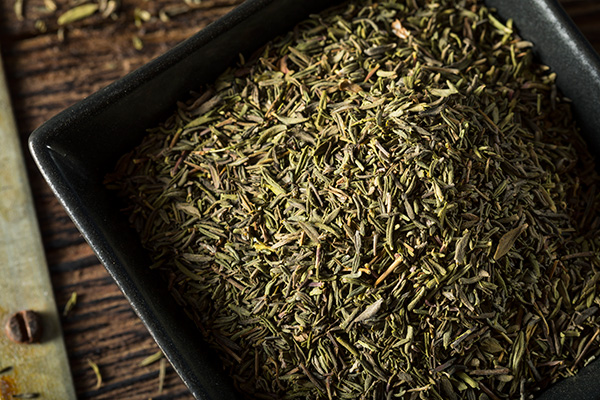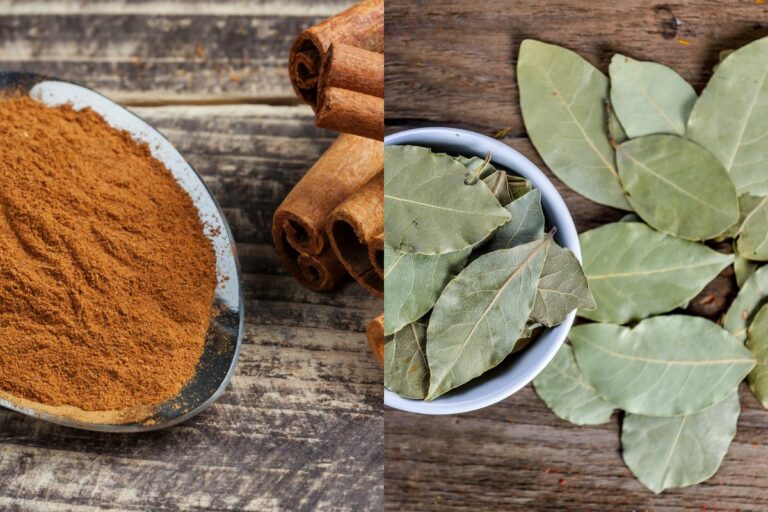Can You Smoke Tea?
While tea is widely known and consumed as a beverage, some people have also taken to smoking it. But are there any actual benefits, and is it safe?
Let’s explore the habit of tea smoking and its possible health implications.

Can You Smoke Tea?
Yes, you can smoke tea. Historically, people have smoked diverse tea leaves, including green, black, and herbal teas.
However, smoking tea may not be as beneficial or safe as consuming it as a beverage. The potential health hazards of smoking any substance, including tea, likely outweigh any benefits.
Also, there is scarce research on the benefits or safety of smoking tea.
Why Do People Smoke Tea?
People sometimes smoke tea as a tobacco substitute, as it is believed to be a more natural and potentially less harmful option. Some reasons why people smoke tea include:
- Tobacco alternative: Smoking tea leaves can be a way for some people to satisfy their oral fixation or smoking habit without resorting to tobacco, which is known to have various health risks.
- Herbal properties: Various types of tea have different herbal properties, and some people believe that smoking tea may provide certain health benefits or promote relaxation. However, scientific evidence is limited to support these claims.
- Flavor and aroma: Some people might enjoy the unique flavors and aromas of smoking tea leaves, particularly when it comes to herbs or spices.
- Curiosity: Some people are simply curious about the sensation of smoking tea and want to experience it firsthand.
It’s essential to note that smoking any substance can still pose health risks. When you inhale smoke from smoking a cigarette or tea, your lungs get exposed to potentially harmful chemicals and particles.
Health Effects of Smoking Tea
There is limited research on the health effects of smoking tea. Still, some people who smoke it report experiencing certain benefits. These claims are mostly anecdotal and not backed by research.
Energy Boost From Caffeine
Some people may smoke tea for its caffeine content, seeking an energy boost. Smoking caffeinated ingredients, like tea or coffee, can potentially deliver caffeine more quickly into the bloodstream than ingesting them.
Cognitive Enhancement
Tea contains an amino acid called L-theanine, which may contribute to improved attention, memory, and focus. However, studies on these effects are primarily based on consuming tea as a beverage or extract, not smoking it.
Better Metabolism
Green tea extract is often used in supplements to boost metabolism and aid weight loss. While studies support these benefits when consumed as a beverage or extract, there is no evidence to suggest that smoking tea has the same effect.
Lowered Anxiety
L-theanine in tea has been shown to ease stress and anxiety. Some people who smoke tea report experiencing similar effects. However, more studies are necessary to determine if L-theanine absorption is effective through smoking.
Healthier Cigarette Substitute
Some people turn to green tea cigarettes to help quit smoking tobacco. While green tea cigarettes contain only a trace amount of nicotine, there are no studies proving their effectiveness as a smoking quitting aid or their safety as a healthier alternative.
Should I Smoke Tea or Drink It?
It is recommended to drink tea rather than smoke it. The health benefits of tea are well-documented when consumed as a beverage or taken in extract form (1). However, there is not much research supporting the benefits and safety of smoking tea.
Moreover, smoking any substance, even tea, may present potential health concerns, including lung irritation, tissue harm, and elevated lung cancer and heart disease risks.
Drinking tea is a safer and more proven way to enjoy its health benefits.
Smoking Tea vs. Tobacco
Smoking tea and smoking tobacco are different practices with distinct health implications. Here is a comparison of the two:
- Chemical composition: Tobacco contains nicotine, a highly addictive substance responsible for tobacco addiction. Tea contains only trace amounts of nicotine. As a result, it cannot cause the addiction tobacco can. However, teas like green or black contain caffeine, which can also have stimulating effects.
- Health effects: Smoking tobacco can cause long-term adverse effects on the body, including heart disease, cancer, and diabetes. The safety and health impacts of smoking tea are not well-established, but inhaling any smoke can aggravate the lungs and result in tissue damage. While some people smoke tea as a perceived healthier alternative to tobacco, the potential health hazards of smoking any substance likely outweigh the benefits.
- Benefits: Drinking tea has various scientifically proven health benefits, such as boosting the immune system or fighting inflammation. These benefits are not well-established for smoking tea. The effectiveness of absorbing beneficial compounds in tea, like L-theanine and catechins, through smoking remains not well-established.
While some people may smoke tea as an alternative to tobacco, it is not a proven healthier option. Drinking tea is the recommended method to reap its health benefits safely while avoiding the risks associated with smoking.
What Tea Can You Smoke?
Although smoking tea is not advised because of potential health risks, people have been known to smoke different kinds of tea leaves, such as:
- Green tea: Green tea comes from the Camellia sinensis plant. It’s often consumed for its ability to aid weight loss or boost the immune system. Some people smoke green tea as a tobacco alternative or for its caffeine content.
- Black tea: Also obtained from the Camellia sinensis plant, black tea undergoes more oxidation than green tea, yielding a stronger taste.
- White tea: White tea, the least processed tea from the Camellia sinensis plant, is also sometimes smoked. However, its delicate flavor and health benefits are better experienced when consumed as a beverage.
- Oolong tea: Oolong tea is partially fermented, placing it between black and green tea in terms of oxidation.
- Herbal tea: Herbal teas come from plants other than Camellia sinensis. Examples include chamomile, lavender, and peppermint teas. Some people smoke herbal teas for their perceived calming or relaxing effects, although these benefits have not been scientifically proven for smoking.
Can You Buy Pre-fabricated Green Tea Cigarettes?
Yes, you can purchase pre-fabricated green tea cigarettes from stores or online.
Remember that the FDA does not regulate green tea cigarettes for safety and dosage, so sourcing them from a reliable, well-reputed company is essential.
How to Make Tea Cigarettes at Home?
To make tea cigarettes at home, you can purchase loose-leaf tea or tea bags and use rolling papers to create your own cigarettes. To do this, extract the contents of the tea bag (if using a tea bag) and spread it evenly on the rolling paper. Carefully roll the paper around the tea, sealing the edges to form a cigarette.
Alternatively, you can smoke loose-leaf or bagged tea using a pipe or water pipe.
Final Thoughts
While it’s possible to smoke tea, the potential health hazards of smoking any substance make it a risky choice. The benefits of tea are best experienced by drinking it as a beverage or taking it in extract form.
FAQ
Can You Smoke Tea Leaves?
Yes, you can smoke tea leaves, but the safety and benefits of doing so are unclear and not supported by scientific research.
Can You Smoke Tea Bags?
Yes, you can smoke tea bags by removing the tea leaves and rolling them into a cigarette using rolling papers. However, doing this is not recommended as smoking any substance, even tea, can have risks.
Is Smoking Tea Bad for Your Lungs?
Yes, smoking any substance, including tea, can harm your lungs and overall health. The potential health hazards of smoking tea likely outweigh any benefits.
Is There Nicotine in Tea?
Yes, tea does contain nicotine, albeit in very small quantities.
Does Smoking Tea Produce Carbon Monoxide?
Yes, smoking any substance, including tea, can produce carbon monoxide as a result of the combustion process. Carbon monoxide is a harmful gas that can cause health issues.
Can You Smoke Tea and Get High?
No, there is no scientific evidence to support claims that smoking tea produces a marijuana-like high. Any such claims are anecdotal and unsupported by research.
Does Smoking Tea Relax You?
Some people who smoke tea report experiencing relaxation, possibly due to the presence of L-theanine, an amino acid with anxiety-lowering effects. However, more research is needed to confirm if these effects can be achieved through smoking tea.
Is Smoking Tea Legal for Minors?
Yes. Currently, there are no laws against smoking tea by minors.
Can You Smoke Black Tea?
Yes, you can smoke black tea, but the potential health risks of smoking any substance make it less beneficial than drinking tea.
Can You Smoke Green Tea?
Yes, you can smoke green tea. However, as with other types of tea, research on the safety and benefits of smoking it is scarce.
Can You Smoke Herbal Tea?
Yes, you can smoke herbal tea, but the potential health risks of smoking any substance make it less beneficial than drinking tea.
Can You Smoke Chamomile Tea?
Yes, you can smoke chamomile tea. However, as with smoking any other tea, it’s best to consume it as a drink than smoking it.






